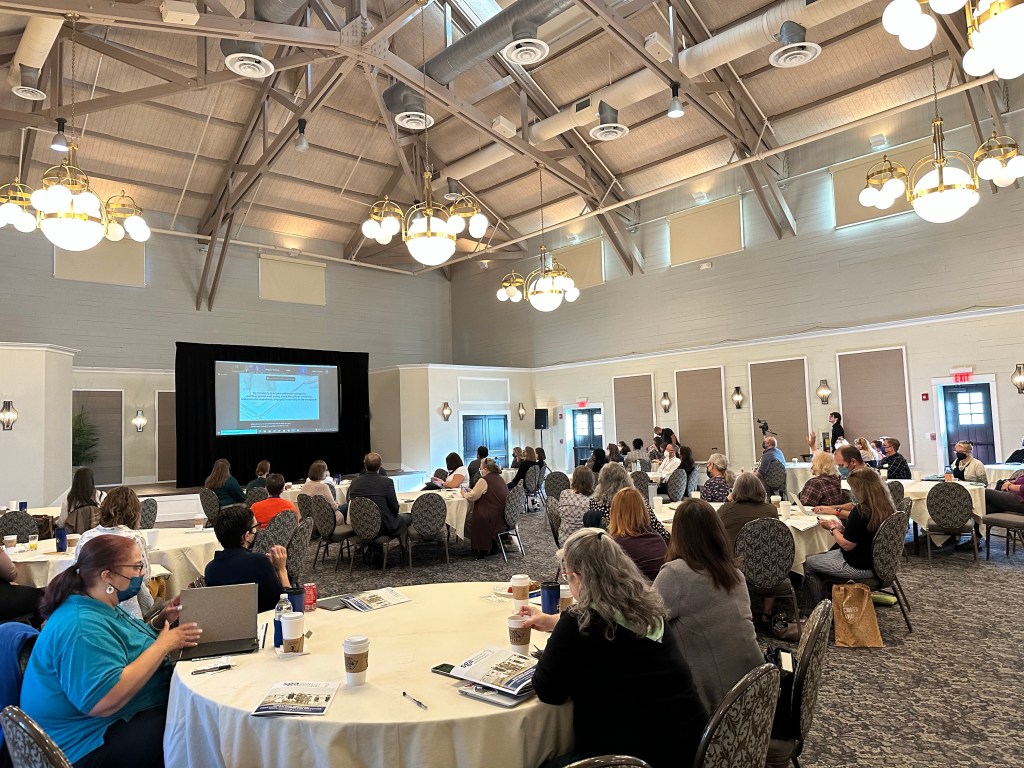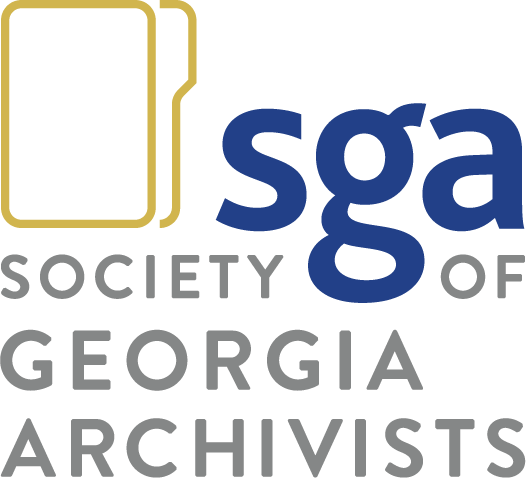Submitted by 2022 SGA President Cathy Miller
This year’s annual meeting theme, Sustaining Archives: Practical Solutions for the Future, in my mind, speaks to not only what we have done to sustain the work of our archives, but the work we have done over the last three years to sustain ourselves. During the meeting, specifically in our keynote and in one of the planned sessions, the importance of self-care was emphasized. And boy howdy, can I say what an advocate I have become for self-care in these times. 2022, which is really just 2020 dressed as two kids in a trenchcoat, has been a year, to say the least. There’s been good, sure, but also, to put it plainly, there’s been a lot of suckitude. I hope that everyone who attended the meeting took away many learning moments regarding the work they do, but I also hope that attendees may have taken away new leases on life – I know, that’s a tall order, but bear with me a moment. Maybe you met a colleague at the meeting who plays Animal Crossing as religiously as you do, and before you know it, you are Switch friends and visiting each other’s islands and conspiring about how to take Tom Nook’s empire down. Or you found someone who shares the same hobby as you and you are able to trade ideas. Or you made a colleague who lives near you and now you have a new friend to go grab coffee or food with. In leaving the annual meeting, I hope you were able to take away something that sustains you as the person you are, not the archivist/librarian/information professional that you are.

We have a lot of vocational awe in our profession. We are either told by someone or we tell ourselves that we are so lucky to be working in this field and getting to do the things we do, thus we’ll let slide the often poor pay, lax benefits, and multitude of other black marks that our profession is guilty of. I am here to say that while the work we do is awesome and important, the work will never love you back. So please, sustain yourself, however that is, be it treating yourself to a yummy food or drink treat on the drive home from work or going to the dollar spot in Target to see what new and exciting things await you. I’ve been reading T.J. Klune’s Under the Whispering Door – the premise of the novel is that Wallace, a workaholic lawyer, has died and he is given one week to get his afterlife in order and cross over to the great beyond. Wallace decides to embrace living a lifetime in those seven days. Let’s not be like Wallace. Live your life in the present. Leave work promptly at your 7 or 8 hour mark. Go enjoy being you with the people and pets that matter most to you in life.

